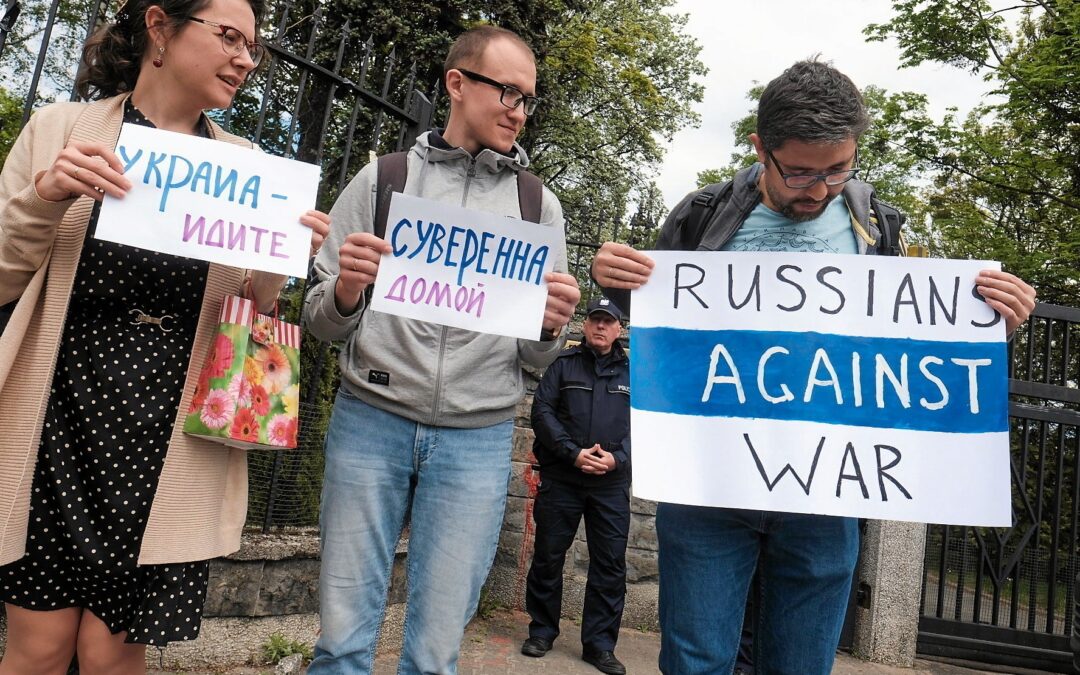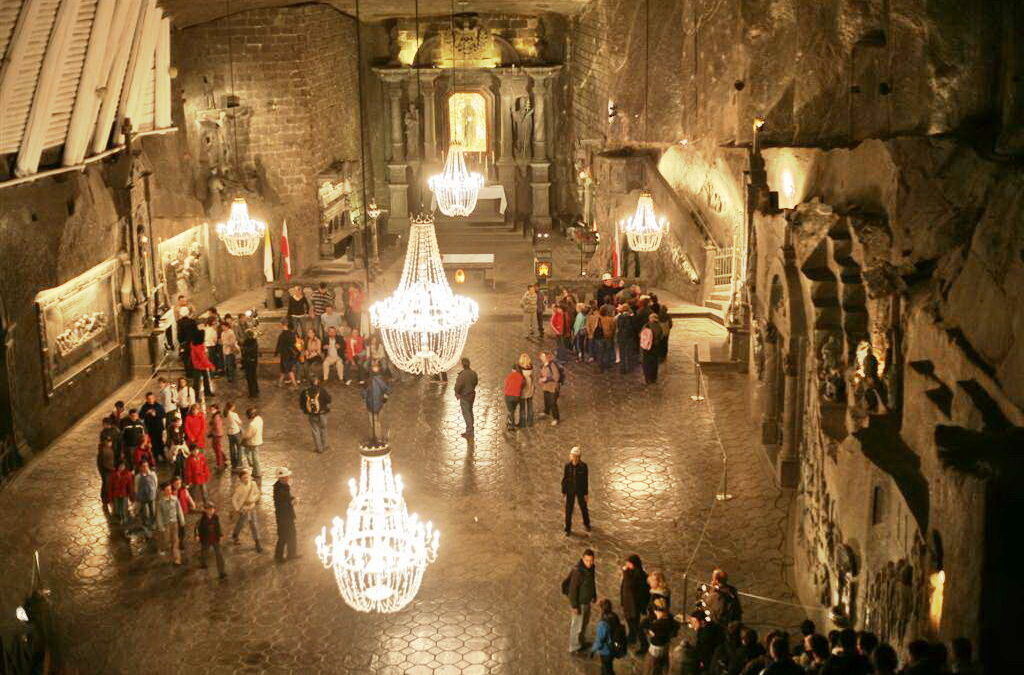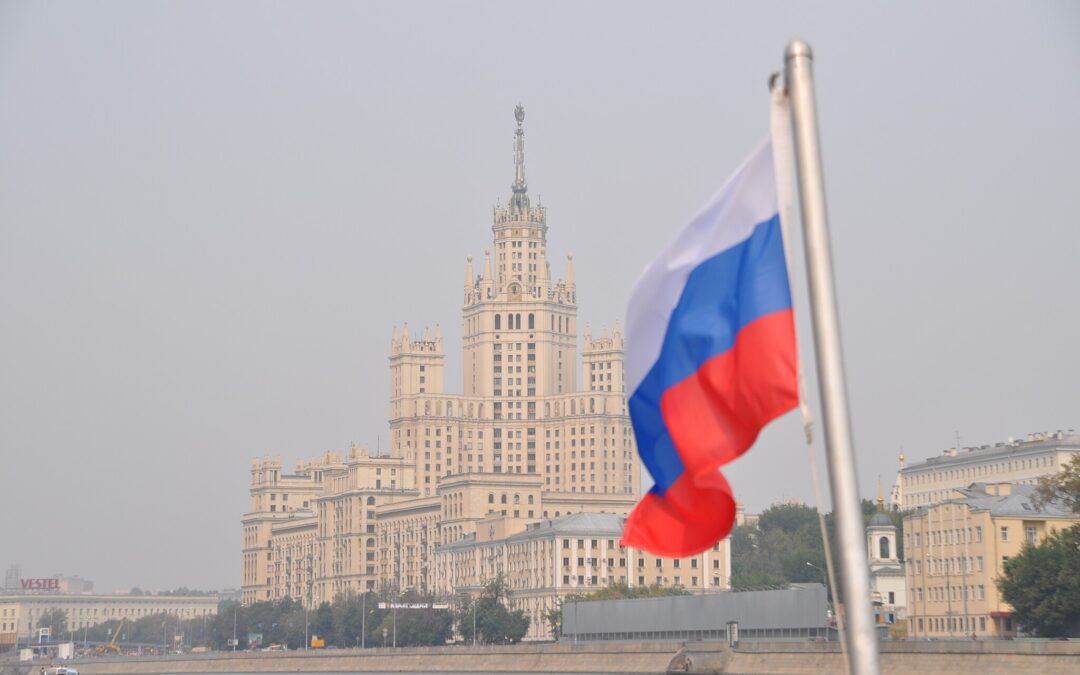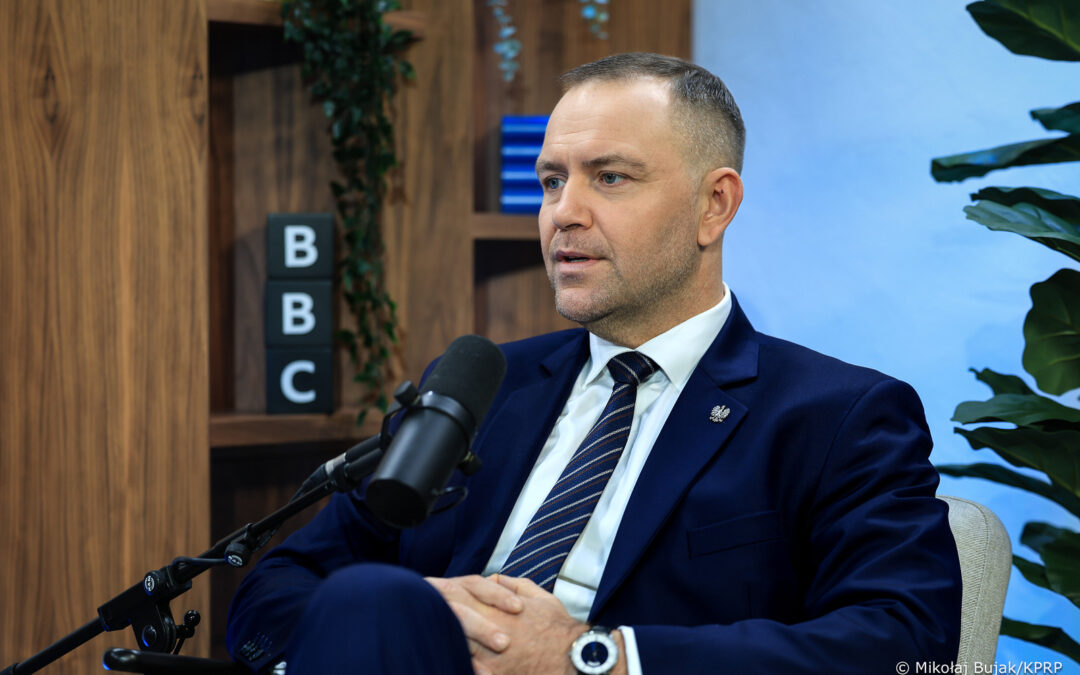By Anna Rzhevkina
Olesya Sergeiko, an English-language teacher from Moscow, is half Russian and half Ukrainian. She moved to the Polish city of Gdańsk with her family in 2021 because of her opposition to the Kremlin’s policies. Back in Russia, Olesya attended protests against Vladimir Putin’s regime and unfair elections.
“I have always fought for fair elections. However, my experience has shown that to somehow influence the situation, we need many more people who care. It became clear to me that a change of power in Russia through fair elections is impossible,” she told Notes from Poland.
The family chose Poland as their new home because Olesya’s husband has Polish roots and the language was similar to Ukrainian and Russian. Olesya opened a beauty salon, where she has employees from Ukraine and Belarus.
Since Russia invaded Ukraine in February, Olesya has been to several anti-war protests in Gdańsk. “In the first months of the war I felt a terrible mixture of horror and shame,” she said. Her family collected humanitarian aid, donated money, and helped Ukrainian refugees in Gdańsk.
Russians living in Poland marched through the streets of Warsaw yesterday to protest against the invasion of Ukraine.
"Russia without Putin," they chanted outside the Russian embassy https://t.co/0Cmyxa6VzR
— Notes from Poland 🇵🇱 (@notesfrompoland) June 13, 2022
Her eight-year-old son attends a Polish school, and already speaks the language fluently. At the end of the school year, he stood hand in hand with his Polish classmate and a refugee boy from Ukraine. “I felt gratitude to the Polish government and Polish society for accepting and uniting so many people,” she said.
However, her hopes for a new life in Poland did not last.
In July this year, the Polish authorities rejected Olesya’s application for a residence permit. In practice, this means that she has to leave Poland before her visa expires in March. She says going back to Russia is not an option, at least until the government changes, because she could go to jail for her anti-war position and participation in protests.
Olesya says that, when Polish authorities rejected her residence permit application, she felt shocked. Looking for help, she has joined a Telegram group for Russian citizens in Poland who found themselves in a similar situation.
The group’s founder, Olesya Kulikova, who came to Poland with her husband last year, says six months after filing their residence application they received a note that the Internal Security Agency (ABW) had sealed certain information (zastrzeżone) relating to their case, and around a month later a rejection letter came.
She says the biggest tragedy for her is that she has not seen her mother, who stayed in Russia, for more than a year.
“My mother is 66 years old, she is retired. She goes to the Catholic church and has been learning Polish for a year now. I really wanted to bring her to Poland to cut off all ties with Russia,” Olesya said. If Olesya goes to Russia even for a short visit, she would not be able to return to Gdańsk, because her visa has already expired and she does not have a residence permit.
Rejections reaching huge scale, say lawyers
The Telegram group includes almost 2,000 people who are worried about residence permit rejections for holders of Russian passports. As of 26 October, 131 group members had received a negative decision and 46 more had got a notification that their documents were sealed, which, as they have learnt from others in the group, means that rejection may follow.
Mikhail Bulatov, 32, came to Kraków from Izhevsk in January this year to study dentistry. His mother is Polish and at his parents’ home he spoke Polish and Russian. After finishing his studies, Mikhail planned to find a job and buy an apartment in Poland.
In March, he applied for permanent residence on the basis of his Polish roots and in September received a rejection. “The rejection has ruined my plans for life but I do not plan to go back to Russia,” he says, adding that he is opposed to the war.
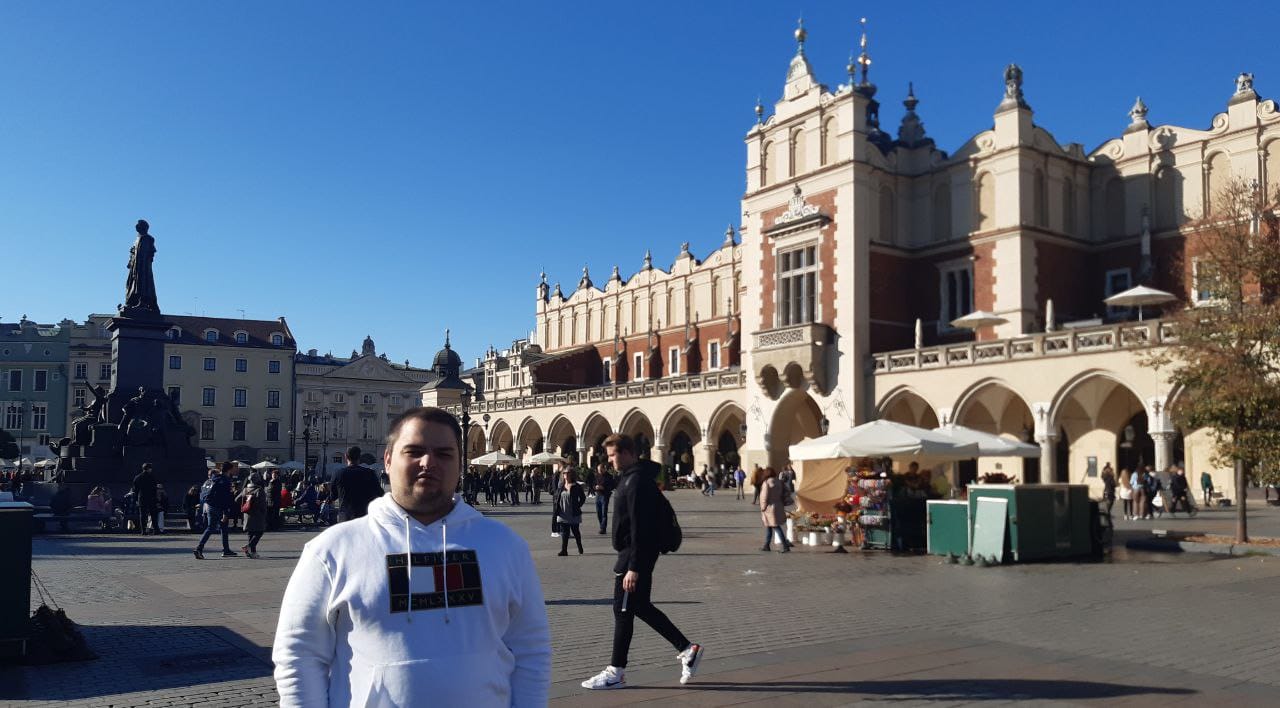
Mikhail Bulatov
Jakub Dudziak – the spokesman for Poland’s Office for Foreigners, which oversees the residence permit process – told Notes from Poland that, by the end of August this year, 7,900 Russian citizens had applied for a residence permit in Poland this year and 970 received a negative decision. In the same period last year, there were 7,100 applicants from Russia, and 730 rejections.
The Telegram group’s founder, Olesya, however, explains that these official statistics do not tell the full story of what has been happening this year, because they include only final decisions. Most people who receive an initial rejection file an appeal, meaning some such cases are still being processed but are likely to end in rejection.
In the Pomerania province where Gdańsk is located, official data show that, as of 26 October, 134 negative decisions had been issued for Russians versus 16 a year ago. When asked to comment on the dramatic rise, the provincial authorities were not willing to give specific reasons, saying only that the bases for rejection include failure to meet specific requirements, state security, and protection of public safety. The Internal Security Agency declined a request to comment.
Two lawyers involved in such cases who spoke to Notes from Poland also confirm that they have seen a rise in rejections.
Attorney-at-law Joanna Romanów-Klapczyńska, a member of the Gdańsk Bar Association, says that, while at the beginning of the war about half of Russian citizens could still count on positive decisions, the share has been gradually decreasing over subsequent months.
“Not all people who have a Russian passport are Putin supporters and pose a threat. Lumping everyone together is very harmful and violates fundamental human rights,” she says.
Romanów-Klapczyńska underscores the need for appropriate procedures to verify applicants. “The possession of a given nationality cannot be the only criterion because it is a manifestation of discrimination,” she told Notes from Poland.
Adam Bulandra, a lawyer in Kraków, also notes that the number of rejections has been steadily growing since April and has now reached a huge scale. From his experience as a legal counsellor, he estimates that at least 50% of applicants with Russian passports get rejected.
Bulandra says that, while authorities claim that people with negative decisions pose a threat to state security, even 13-year-old children are getting rejections with that justification. “I think that the Polish government decided to reduce the number of Russians in Poland and came up with such a way,” he says.
“I felt like in Russia – like I have no rights”
Elena (who has asked for her surname not to be published), a 39-year-old single mother, moved to Poland from Siberia with her daughter, who has type 1 diabetes. When Russia started substituting insulin with domestic analogues, Elena felt scared that the necessary drugs and medical equipment for her daughter would become unavailable.
“In Poland, we started a new life and my daughter got a chance for high-quality medical care. During this year, she went through a difficult period of adaptation – a new country, a new school,” Elena told Notes from Poland.
But their hopes for a safe future in Poland vanished after local authorities rejected her residence application. Like in other cases, the Internal Security Agency sealed the documents, meaning that Elena could not find out a specific reason for the decision.
“I cannot even justify myself and build my line of defence,” she says, adding that going back to Russia would mean putting her daughter’s health at risk. She has now filed an appeal to the Office for Foreigners. “If the[y] do not change anything and the negative decision comes into force, we will be in a situation where, in principle, we will have nowhere to live,” she says.
Elena says she has never felt a negative attitude towards her either from Polish or Ukrainian people, and she is still in touch with her Ukrainian acquaintances in Gdańsk. “I have not met any Russians here who support the war,” she says.
A mock referendum has called for Poland to annex the Russian embassy in Warsaw.
"Turnout was 127%," said the organisers of the stunt, which took place outside the embassy and saw thousands queue to vote https://t.co/eAObk8FzB9
— Notes from Poland 🇵🇱 (@notesfrompoland) October 17, 2022
Elena does not have any relatives who could support her in Poland. She has appealed to the commissioner for human rights, asking to help with her case. In a written response to her, seen by Notes from Poland, the commissioner’s office wrote that “there could be an impression that when issuing decisions rejecting the stay of Russian citizens in Poland individual circumstances of some foreigners were not taken into account”.
Speaking separately to Notes from Poland, a representative of the commissioner, Anna Kabulska, said that the number of complaints about residence rejections for Russian passport holders has been growing.
“Many of the decisions in cases examined by the commissioner’s office are justified by the authorities on the grounds of protecting national security or public safety,” she says.
Elena said she was surprised that the Internal Security Agency did not arrange any interview to clarify concerns regarding her case. “I felt like in Russia – like I have no rights. The authorities decided something for me, and I have to deal with the consequences,” she says. “I cannot say anything to my daughter – whether we will go somewhere or stay here. We have nowhere to go”.
Qualified professionals consider leaving Poland
Viktor Varlamov, an IT professional, moved to Gdańsk almost six years ago with his wife, who had a Polish grandfather. He has recommended Poland as a place for relocation to many of his colleagues because local people are polite and friendly and there are many similarities between Russia and Poland. He also says he is proud of Poland’s help to Ukrainians.
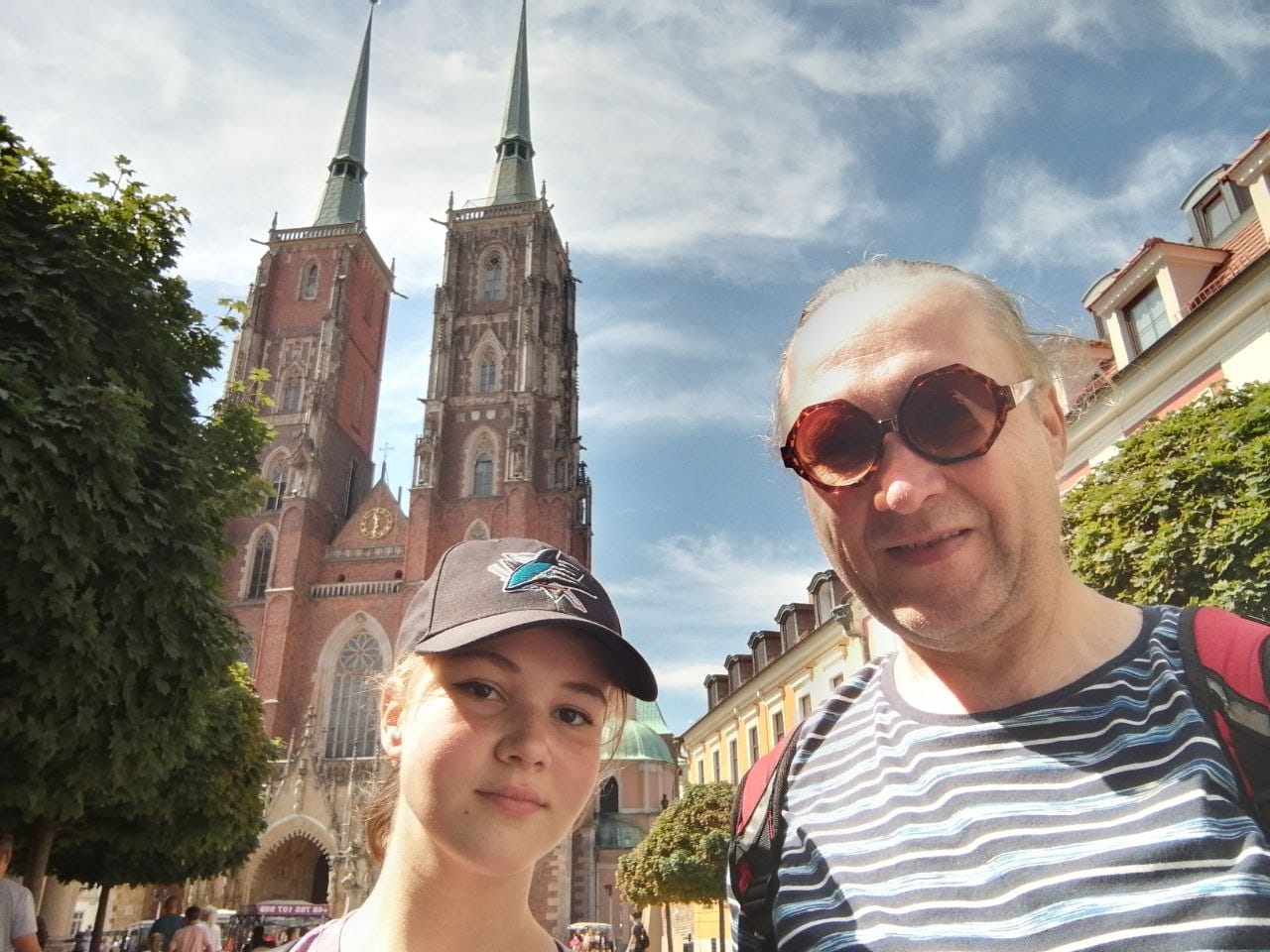
Viktor Varlamov and his daughter
However, while Viktor’s wife has received Polish citizenship, the authorities rejected his request to extend his permit of stay. Viktor warns that rejecting residence for all Russians, regardless of their political views, could lead to an outflow of qualified specialists, and not only Russians.
“Some Ukrainians are already saying: first they will expel the Russians, then the Belarusians, and then they will take on us,” he says. After the residence permit rejection, Viktor moved with his wife to Spain.
“I believe that Poland now faces a choice whether to remain a democratic country, a member of the European Union, a country without discrimination, attractive to qualified and active people from all over the world who will help Poland develop its economy,” he says.
Main image credit: Piotr Skornicki / Agencja Wyborcza.pl
